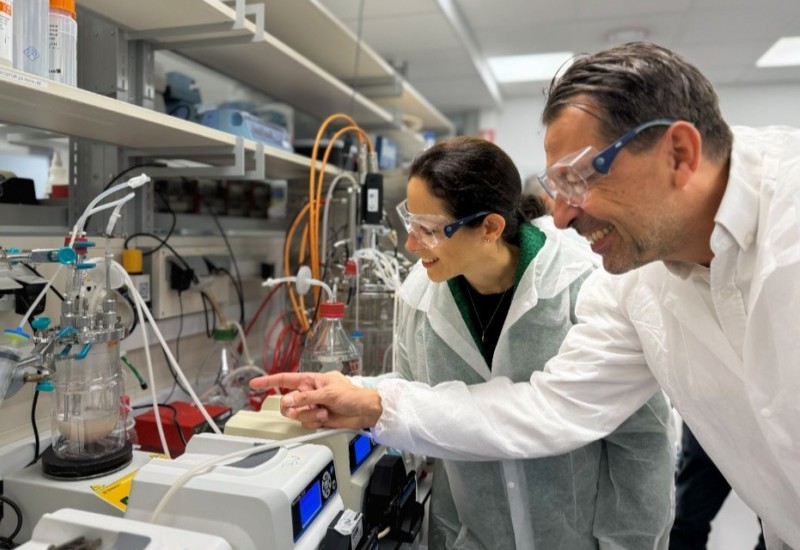Charkit Chemicals takes the ‘natural’ route to expansion
Going ‘natural’ is becoming an industry trend and Charkit Chemicals is one of many companies looking at strategic expansion initiatives into the herbal extract and botanical segment – an industry poised for growth in the years to come.
Botanicals under the radar in 2018
Companies across the globe have been bolstering their acquisition activities to form strategic alliances with botanical and herbal ingredient manufacturers. The demand for botanical extracts stood at nearly US$4 billion in 2017 and is projected to reach over US$6 billion by 2022, according to an industry report.
One such recent alliance is a joint venture between Charkit Chemicals and Sanat Products, entered into on 1 September 2017. Sanat Products, a subsidiary of multinational conglomerate Dabur, has been working alongside Charkit for the past two and half years to manufacture and supply high-quality products to enhance their natural and herbal extract product portfolio. This collaboration is intended to combat inconsistencies in identity verification of herbal extracts and botanical powders in the US, by helping to standardise testing methods.
Speciality Chemicals Magazine’s India correspondent, Savita V Jayaram delves into the ‘natural’ challenges faced by the industry owing to an intensified regulatory oversight, by interviewing Jay Lang, executive vice president of Charkit Chemical Company.
Decoding DNA
Referring to the DNA verification issue in the US, Lang explains that “different states have been using DNA identification to give consumers the confidence that the efficacy of herbal supplements is exactly as advertised. However, during extraction, the source code of the DNA does get affected. Therefore, the regulatory bodies need to be educated to come up with suggestions that appease the consumer quickly. This would require more collaboration between all parties in the supply chain and legislators, which will take more time.”
Through Charkit Chemical’s strategic collaboration with Sanat, Lang hopes to bring in value addition by standardising testing methods. He also hopes to interpret consumer demands better via numerous clinical studies regularly conducted by Sanat.
Sanat, on the other hand, is looking to benefit from Charkit’s strong US presence by tapping into its robust R&D and proprietary technology.
Synergistic effect
To navigate challenges presented by the complex regulatory landscape, Lang feels that “having a quality manufacturer as the anchor of the supply chain helps. We feel confident that the formulations developed using Sanat’s products will stay intact and cannot be replaced. It will help preserve formulation value in the supply chain to prevent commoditisation of products while retaining its focus on efficacy.”
“Beyond standardising testing methods, Charkit’s business presence is built on transparent relationships with quality producers, customers, suppliers and the entire supply chain. As of 1 July 2017, Charkit brought in equity partners and today 85% of the company is in equity partnership.”
Benefits in store
Increased transparency is one of the biggest advantages offered to clients and customers as a direct impact of this collaboration. The transparency here is not just focused on the distributor-manufacturer relationship, but also from farm to supplement manufacturing.
The customer can now have direct contact with the source of the raw material, request for samples of raw material before extraction, verify and confirm the identity of the raw material both before and after extraction.
On transparency, Lang elucidates: “This dynamic and transparent relationship with the manufacturer helps. We have never faced any resistance from Sanat Products regarding resources required to meet these demands, but only undying support to encourage customers. This puts an onus on the manufacturer to own 100% accountability for every step in the manufacturing process – from sourcing the raw material, transporting the raw material to the extraction site, accountability for the solvents and residue, and also the social impact. Because we are into the health and wellness segment, we have to be consistent with quality products to serve our customers better.”
He added: “Since the very beginning, Charkit has been receiving continuous customer feedback with regards to the pricing of Sanat products being on the higher side. Through the years, we have been educating customers/clients that the products manufactured by Sanat are of premium quality and standardised across, to not offer any customised, lower tranche or premium products as its variants. This transparent relationship thus developed with manufacturers during the period, is why our customers are convinced today that the pricing offered is not higher, but different.”
Looking to the future
Charkit is in the know of growing market and customer demands but claims to be no expert in technical and R&D capabilities. Hence, the company relies heavily on its vendors for the technical capabilities and works on an exclusive basis with them.
Lang explains: “We do not take on a distribution arrangement unless it’s a quality certified global company with R&D capabilities, financial strength, quality of products and is fully vetted by our quality and regulatory team, financial, sales and marketing team before agreeing.”
As of now, Charkit is not looking at expansion into the Indian subcontinent. However, India has been a vital partner for sourcing ingredients and chemicals over the last 35 years. The company is looking at expansion into the region only through collaborations and benefit from the ‘Make in India’ scheme launched in 2016.
The company’s business focuses on flavours and fragrances, personal care, cosmetics and nutritional business. Additionally, the company maintains its role as a leading speciality chemical source to the imaging, water treatment and metal treatment industries.
“We are looking at opportunities for growth both through acquisitions and organically,” Lang concludes, with renewed optimism.
Savita V Jayaram, India correspondent
















